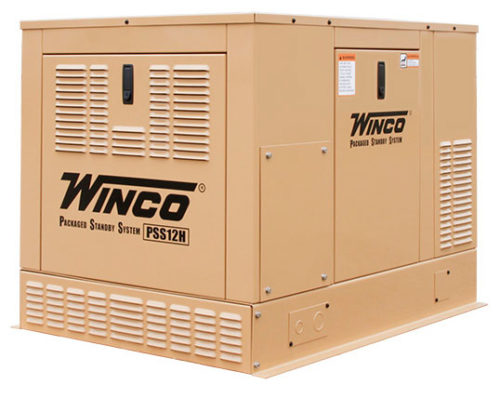Commercial Standby Generators

ISC Sales offers Winco commercial standby generators for sale. We’ll walk through what you need to know about commercial standby below.
Benefits of Commercial Standby Generators
When in the midst of a power outage, businesses suffer. Communication and productivity come to a halt when the power that supplies electricity stops. This puts time, resources and ultimately profits at stake. You need to keep the power on and your business running. Your solution? A commercial standby generator ensures that you can continue business as usual during valuable business hours regardless of the elements.
How Much Generator Do I Need?
There are portable generator units that can provide enough power to support smaller scale needs. But when you need to power a commercial building and more robust business operations, you need more power. This is where a commercial-grade generator comes in. Commercial standby generators safeguard organizations as permanent sources of on-site backup power in the case of an emergency.
How They Work
Commercial generator units detect power outages through automatic transfer switches that are connected to the main electrical panel. Manual and automatic transfer switches are installed to transition power from the utility line to the generator’s backup power. Automatic switches also automatically return the power source to the utility line when electricity is back.
Know Your Wattage Needs
You can evaluate the amount of power you will need for a given day by looking at a previous month’s electricity bill. Pick one of the higher months for electricity and find the highest day. Then you might estimate an additional amount, between 15 – 25% on top of that just to be safe. If you are looking at individual items or rooms in the case of an emergency, you will want to isolate specific wattage amounts. You should consult the help of an electrician to verify your electricity needs. Then you can turn to the fuel type that would work best.
Fuel Options for Your Generator Engine
Generators have their own engines that convert energy from fuel into electricity for your business. The source of power can be a variety of different fuels and each has their pros and cons. If you want a generator with a lot of power, for example, 150kW of power, diesel will be the most efficient and it is the most popular. The fuel source options range from diesel, gasoline, natural gas, propane, or a tri-fuel. Here is a basic overview of the different types and use cases for each:
- Diesel – oil is the most popular commercial generator fuel due to its availability and its efficiency in powering engines of all types, not just generators. It is commonly used as a fuel type for a variety of other applications and can be stored for several years, which makes it a great option.
- Gasoline – this fuel source is often easy and affordable, though sometimes in higher demand. Therefore, at times it can be harder to get. Gasoline stored on site lasts for a year, or less, and is highly flammable, so there are multiple detractors when needed in an emergency situation.
- Natural Gas – some businesses have a natural gas line already available at their business. Generators that run natural gas need more of it than other fuels in order to power the generator, but if it’s already on-site, it’s a no brainer.
- Propane (gas) – the cost of purchasing and storing this fuel is the biggest detractor for larger businesses. Propane is practically unlimited and is a clean fuel making it a great option for smaller businesses that don’t need as much to run during a power outage.
- Tri-Fuel or dual fuel – this is often recommended for prime power generators, or those that use their generator as a primary source of electricity. The combination is typically diesel and natural gas and in the case of fuel limitations, your power can be supported by either fuel.
Selecting Your Commercial Standby Generator
In summary, before selecting the right commercial or industrial generator for your business, you will want to confirm:
- The size of the unit. This includes both the wattage amount needed, where to store the physical unit and making sure that the size fits the space.
- The type of fuel and the amount needed to power your important business practices. Generators stop running when the fuel source goes out, so you will want to know how much is required to keep your business running for the entirety of an outage.
It is best to consult with an electrician for two reasons:
- To confirm how many watts you will need to ensure you have enough power available in the case of an emergency. They can also provide recommendations for the kind of fuel source that works best.
- When you are ready to install, you want certified help to put in your transfer switch and configure your generator so it is ready to produce the appropriate amount of electricity at the right time.
Buy Commercial Generators from ISC Sales
ISC Sales has been in business for over 30 years, serving the industrial sector with expert solutions and products. Take a look at our commercial standby generators available for purchase on our online store and call us at (877) 602-0010 if we can help answer any questions about which commercial emergency generator is right for you.
